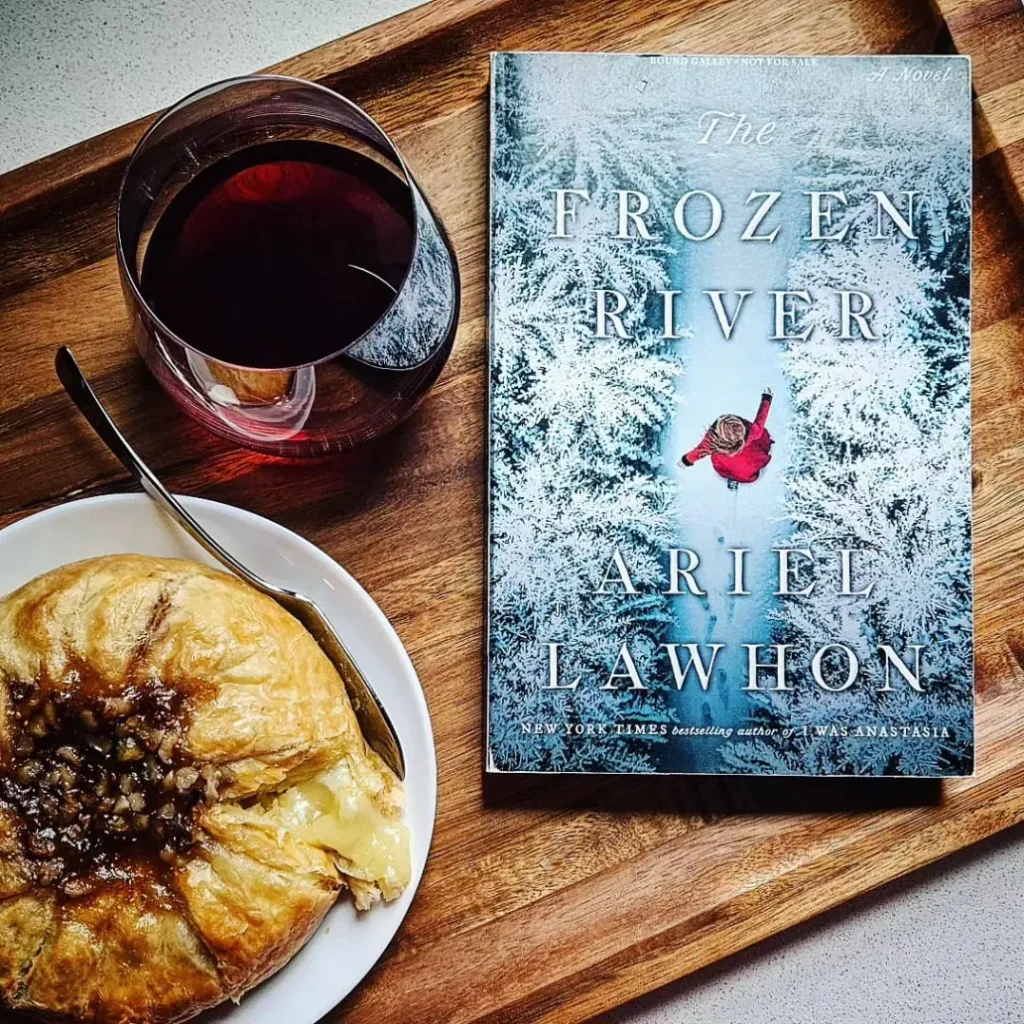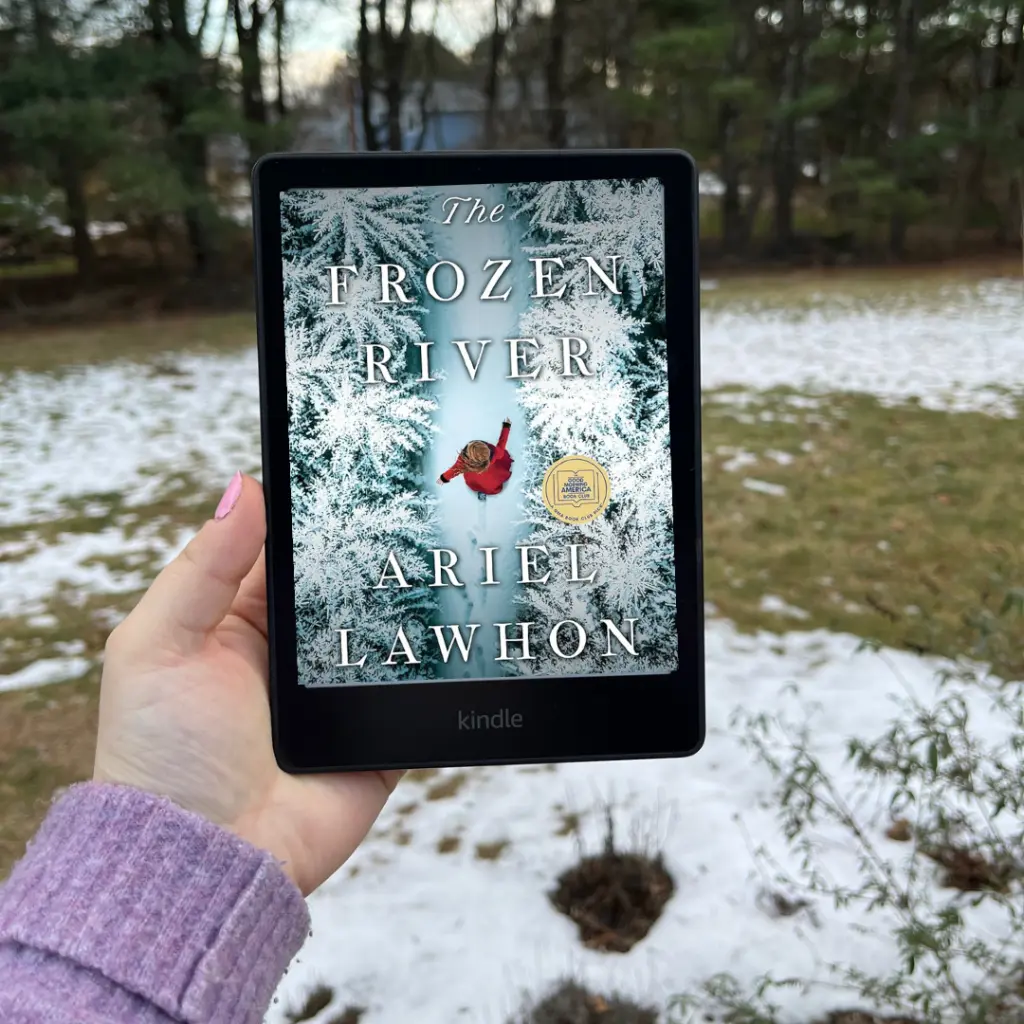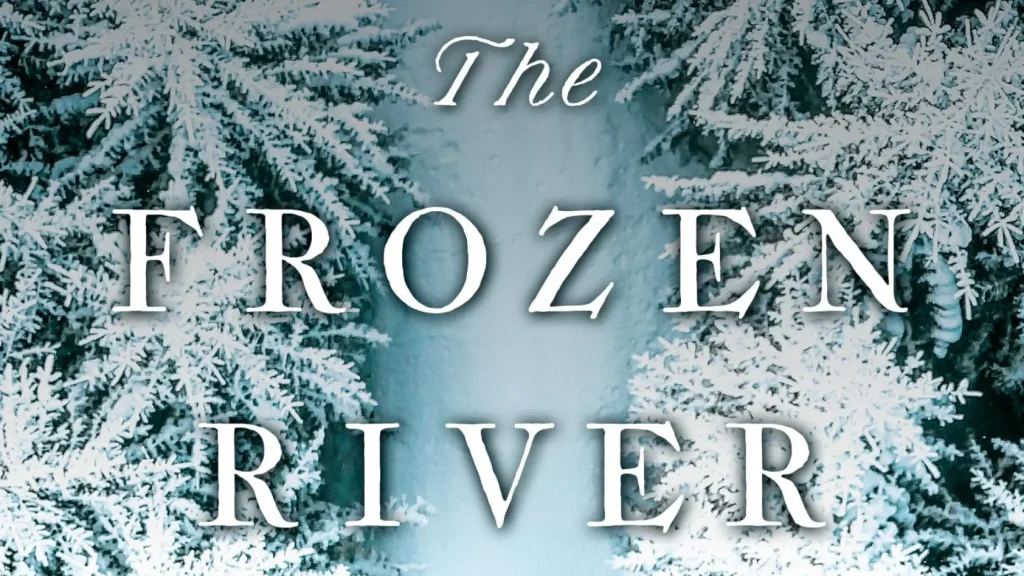Ariel Lawhon’s The Frozen River is a masterful blend of historical fiction and crime drama that immerses readers in the brutal, frozen landscape of 18th-century Maine. Centered around the life of midwife Martha Ballard, the novel uses real historical figures and events to craft a compelling narrative of murder, justice, and the resilience of women navigating a patriarchal world.
A Historical Setting Full of Life and Danger
The story is set in Hallowell, Maine, during the frigid winter of 1789. Lawhon’s portrayal of this time period is vivid, bringing to life the challenges of survival in the early American frontier. The harshness of the environment acts as both a literal and metaphorical backdrop to the struggles of the town’s inhabitants. The frozen river itself becomes a haunting character—its icy surface both concealing and revealing truths as the plot unfolds. Through meticulous research, Lawhon recreates the societal norms and legal restrictions of the era. The story reflects the limited autonomy of women, who were bound by laws like coverture that dictated their legal identities were tied to their husbands. This tension drives much of the novel’s drama as Martha attempts to assert her voice within these constraints.

A Difficult Hero
Martha Ballard is an interesting protagonist, based on the real-life Martha Ballard-a midwife, amateur detective, and advocate for the women in her tight-knit community. Lawhon has painted her as intellectual and determined, who distributes her duties as a healer and an unflinching justice seeker. Martha’s sharp eyes and observing human nature let her endure the most ruthless male-dominated environment with unmatched strength. Martha’s character is highly intriguing in its rendition of middle-aged womanhood. A very empathetic and competent figure, she is nevertheless human-something that oozes from moments of fear, doubt, and exhaustion. It is this inner struggle that makes her so relatable, but at the same time, her courage and resilience earn her an admiration bordering on the incredible.
The Mystery and Its Stakes
The central mystery begins with the discovery of Joshua Burgess’s body in the frozen Kennebec River. As Martha examines the corpse, she identifies signs of foul play, but her findings are challenged by a newly arrived male doctor, whose arrogance and dismissal of her expertise reflect the gendered biases of the time. This murder mystery is layered over another pressing conflict: the trial of Rebecca Foster, a pastor’s wife who accuses two prominent men, including a judge, of rape.
These interwoven plotlines create a gripping narrative. Martha’s determination to support Rebecca in court. despite societal backlash and personal risk, underscores the systemic obstacles women faced in seeking justice. The stakes rise as Martha realizes the murder and the trial are connected, with implications that threaten her family’s safety and her own livelihood. Lawhon’s writing deftly balances these dual storylines, ensuring that the narrative never loses its focus. The pacing is deliberate, building tension as Martha pieces together the clues that could unravel the town’s power dynamics.
Themes of Justice and Resilience
The Frozen River is largely a story about fighting for justice. Power, morality, and the unending strength of women against systems of oppression entwine in this novel, in which Martha seeks to defend Rebecca and find out who killed Joshua. Lawhon also extends modern-day parallels, including that many of the challenges women of 1789 faced-being disbelieved, dismissed, or silenced-remain relevant. It is such a connection that gives the novel a resonance particularly contemporary and hence not just historical fiction, but even a tract on the continuing struggle for gender equality and the imperative to protect the helpless.
Highlights of the Novel in The Frozen River
Richly Detailed World-Building: Lawhon’s descriptions of 18th-century Maine are immersive, from the icy rivers to the close-knit but judgmental community. Every detail contributes to a vivid sense of place and time.
Complex Characters: Beyond Martha, the supporting characters—both virtuous and villainous—are well-drawn. Figures like Rebecca Foster and Judge North reveal the era’s moral complexities, while Martha’s husband, Ephraim, offers a rare glimpse of partnership and mutual respect in a time when such dynamics were uncommon.
Layered Plotting: The novel’s dual storylines of murder and assault are intricately woven, with each development heightening the stakes and deepening the mystery.
Empathy and Modern Parallels: The novel’s exploration of historical injustices feels deeply relevant, emphasizing how far society has come—and how much further it must go.
You can Buy this book from $0.99
Final Word about Frozen River
The Frozen River is a triumph of historical fiction, combining a meticulously researched setting with a compelling mystery and a deeply human protagonist. Ariel Lawhon’s ability to illuminate the struggles and resilience of women in early America is both inspiring and thought-provoking. For fans of historical fiction, crime dramas, or narratives centered on strong, complex female characters, this novel is a must-read. With its rich storytelling and poignant themes, The Frozen River not only transports readers to another era but also leaves them reflecting on issues of justice, truth, and the enduring fight for equality. It is a testament to the power of historical fiction to shed light on the past while speaking to the present.
Ariel Lawhon is an amazing storyteller with stories embedded in deep-rooted history, complete with detailed research. She weaves fact and fiction within a story so perfectly that they not only sound credible but emotionally touching too. In addition, her eagerness to dig unknown information about historical personalities shows her interest in amplifying voices usually unheard by history. Each subsequent novel proves a unique skill in creating complex, relatable characters, especially strong women in trying times. Her contributions to literature persist in inspiring people as she points to aspects of yesterday, offering perpetual contemplation relevant to subjects on humanity and justice.

